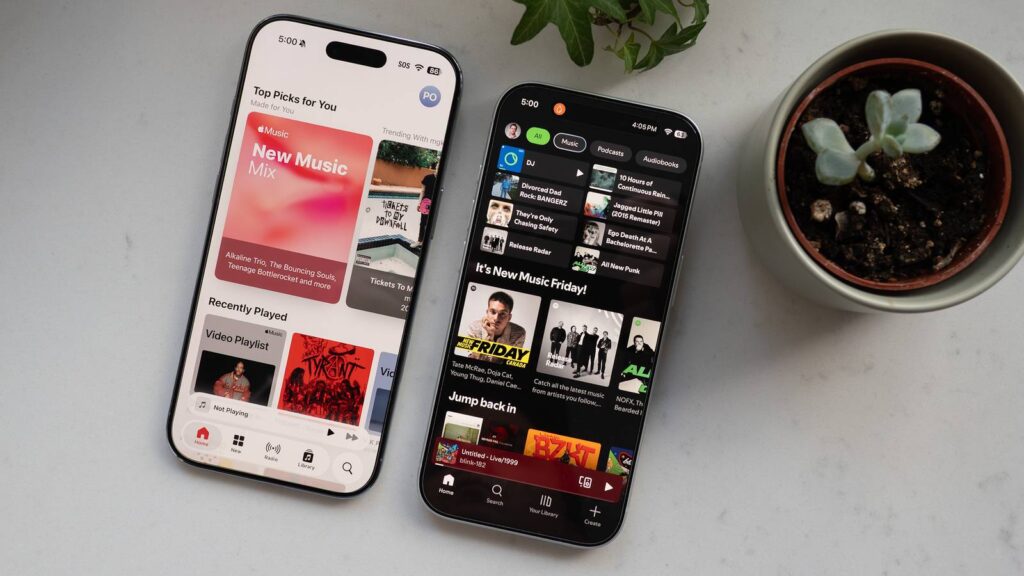
Apple, a titan in the tech industry, is renowned for its cutting-edge products like the iPhone, Mac, and iPad. Despite its dominance in various sectors, Apple finds itself trailing behind in the audio streaming landscape. While Apple Music boasts superior audio quality with its lossless and Spatial Audio features, it significantly lags behind Spotify in terms of paid subscribers. According to estimates, Spotify has nearly tripled Apple Music’s global subscriber count.
This disparity is not due to a lack of quality or user-friendly design; rather, it stems from Apple’s strategic decision to separate its audio offerings. Unlike Spotify, which provides a unified platform for music, podcasts, and audiobooks, Apple Music focuses solely on music. This decision has left many users questioning why podcasts are not integrated into Apple Music, a feature that could potentially boost its competitive edge.
The Fragmented Landscape of Apple Audio
Apple’s approach to audio streaming is characterized by its division into multiple platforms. Apple Music, which evolved from the former iTunes store, offers a subscription-based service for music streaming. Users can access a vast library without purchasing individual tracks or albums, a model that seems logical yet incomplete.
However, Apple Podcasts remains a separate entity, offering free access to a wide range of podcasts. This separation requires users to toggle between different apps for their audio needs, a convenience that Spotify users enjoy within a single platform. The decision to keep these services distinct is seen as a disadvantage, especially when competitors like Amazon Music offer integrated services.
Why the Separation?
Apple’s rationale for maintaining separate apps is rooted in user experience. The company argues that dedicated interfaces for music and podcasts allow for a more focused and streamlined search experience. Some users appreciate this clarity, but others find it cumbersome to manage multiple apps for different audio content.
Despite Apple’s insistence on separation, the market trend leans towards consolidation. Spotify’s success with its all-in-one platform model highlights the demand for integrated services. By keeping its audio offerings divided, Apple may be missing out on attracting a broader audience.
Implications for Apple’s Market Position
The decision to keep podcasts and other audio content separate from Apple Music has broader implications for Apple’s market strategy. While the company excels in hardware and software integration, its audio strategy appears fragmented. This division could hinder Apple’s ability to compete effectively with platforms that offer comprehensive audio solutions.
“Apple has a true chance to compete with other streaming platforms, and it’s choosing not to.”
Moreover, Apple’s insistence on separate apps for specific genres, such as Apple Music Classical, further complicates the user experience. While classical music enthusiasts may appreciate the dedicated app, the need for multiple apps for different music genres can be seen as excessive.
Looking Ahead: Opportunities for Integration
To remain competitive, Apple may need to reconsider its audio strategy. Integrating podcasts and potentially audiobooks into Apple Music could enhance its appeal to users seeking a one-stop audio platform. Such a move would align with industry trends and user preferences for convenience and simplicity.
As the audio streaming market continues to evolve, Apple’s ability to adapt its strategy will be crucial. By embracing integration, Apple could leverage its existing strengths in audio quality and user experience to capture a larger share of the market.
In conclusion, while Apple Music excels in audio quality, its lack of integration with other audio content is a significant barrier to its growth. By reevaluating its approach and embracing a more unified platform, Apple has the potential to strengthen its position in the competitive audio streaming landscape.







